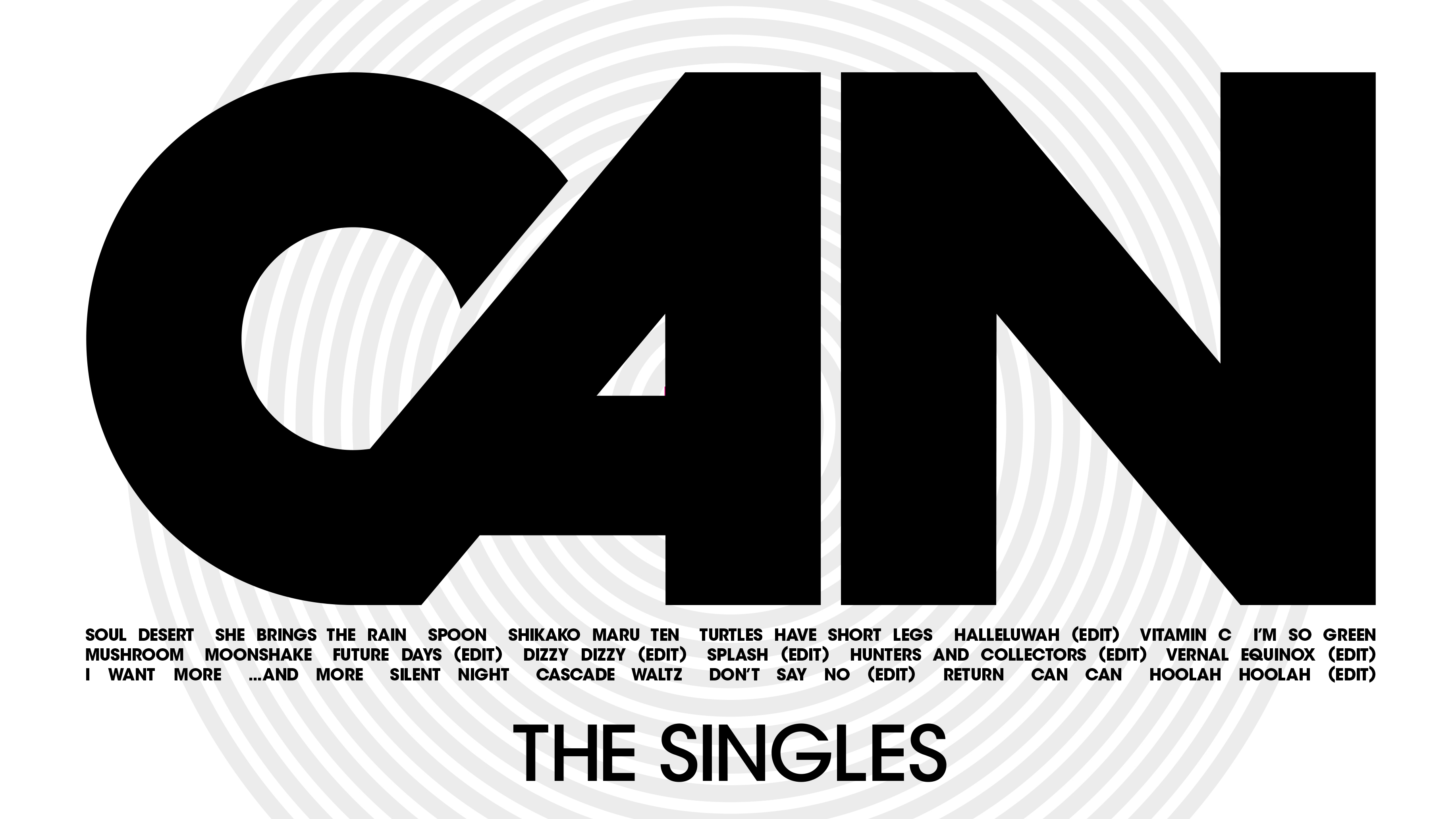Arguably more popular now than during their 70s heyday, Can are a band that, in the main, appear to be the preserve of the critical fraternity and obsessive crate diggers, with little room for manoeuvre for the casual observer. However, this is a disingenuous view at best, as the influence of Can has stretched over the decades, be it their inadvertent birthing of post-punk in the form of The Fall and Public Image Limited’s still potent Metal Box, through to freaky dancers Happy Mondays, space cadets Loop and up to the present day with The Mars Volta and even Kanye West.
The Singles is one of those rare compilations that will satisfy both novices and long-standing fans alike. For the former, this is a career-spanning overview that stretches from their formation in Cologne, Germany, in 1968 through to their dissolution 11 years later and their brief reunion in 1989, and it captures some of the most daring, innovative and inventive music to have been captured for posterity. Eschewing blues-based forms and rock’n’roll in favour of rhythmic repetition and free improvisation, Can’s cosmic grooves have few reference points and, after all this time, still sound like the future.
And while those long-standing fans will already be familiar with all of this, this collection will do much to reverse the received wisdom that Can became something of a spent force after the departure of vocalist Damo Suzuki from the band’s second incarnation.
So while the mutant funk of Halleluwah or Vitamin C remain at the core of Can’s oeuvre, the likes of Vernal Equinox show that drummer Jaki Leibezeit, bassist Holgar Czukay, keyboard player Irmin Schmidt and guitarist Michael Karoli could still create rhythmically hypnotic and multicoloured head music way ahead of the pack. And let’s not forget that Can actually appeared on Top Of The Pops with the unexpected hit I Want More.
But only a fool would deny the true impact of that earlier, seminal material. The metronomic splendour and musical other-worldliness of Spoon still beguiles, while the uncovering of ultra-rarity Turtles Have Short Legs will unite neophytes and seasoned observers alike.
As evidenced here, experimental doesn’t mean inaccessible. This is music from the past that, while only looking forward, is still daring the present to catch up.

